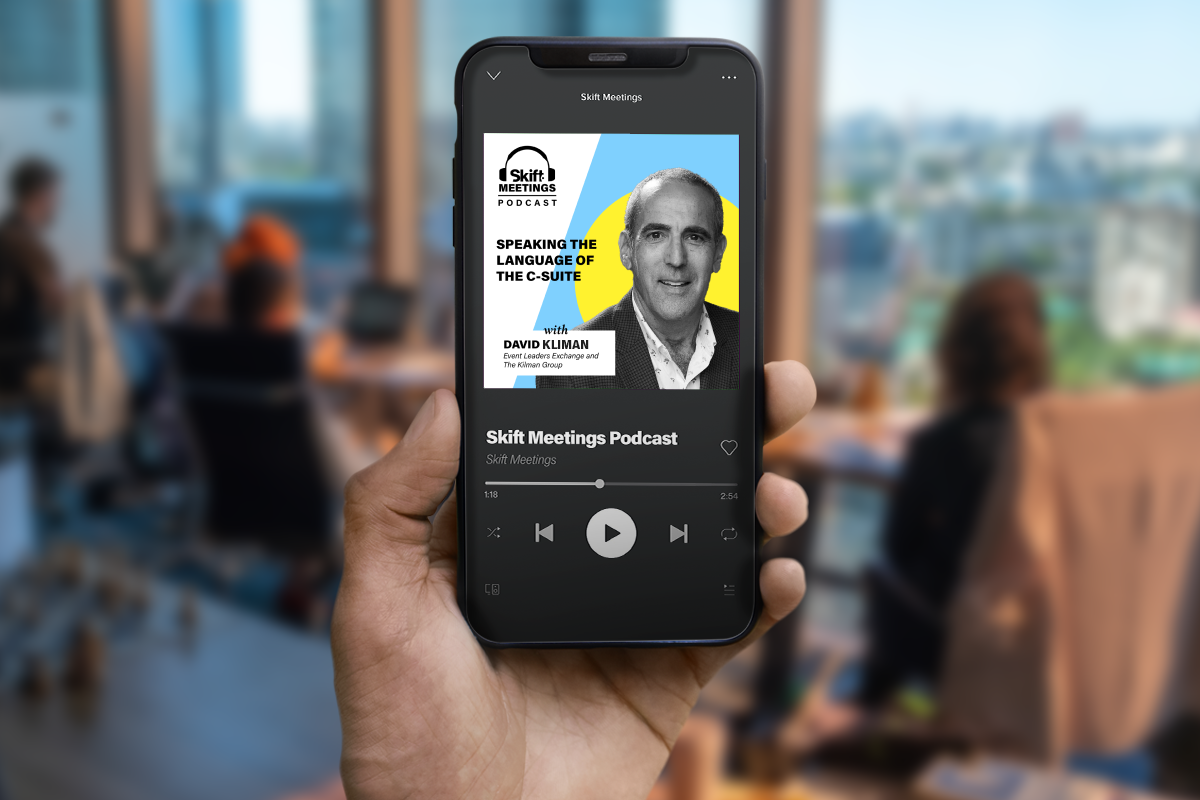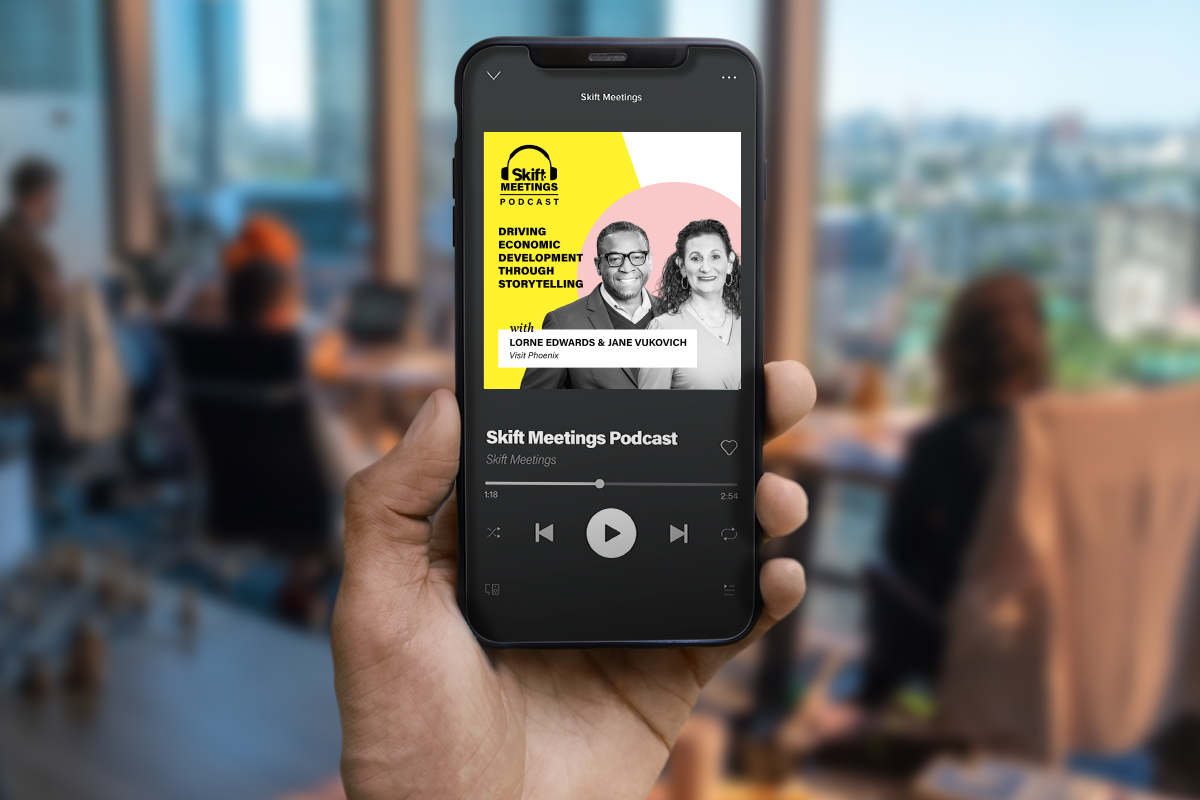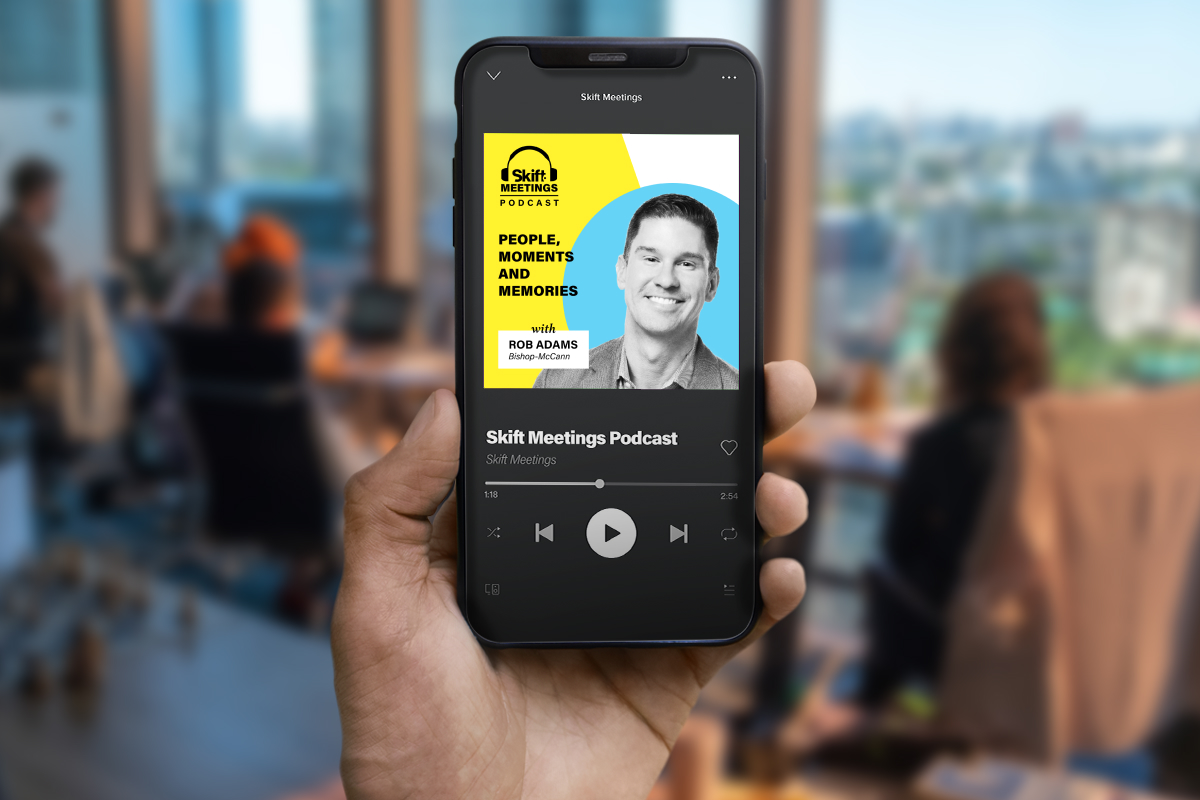Skift Take
David Kliman, owner of The Kliman Group and co-founder of Event Leaders Exchange, on belonging, neurodiversity, strategic meetings program consolidation, and the power of speaking the language of business.
David Kliman is the owner of The Kliman Group, and co-founder of Event Leaders Exchange (ELX). Hi is also a firm believer that meeting professionals think beyond the planning and logistics of their meetings. They must focus on the business impact that meetings create and speak the language of the C-suite. It is only when planners speak in terms that board members understand that they get a seat at the table.
Subscribe to the Skift Meetings Podcast: Apple Podcasts | Spotify | Overcast | Pocket Casts | Google Podcasts | Amazon | RSS
Career Progression and Current Focus
After three years of traveling around the world post-high school and finishing his university studies, he began his career at the Plaza Hotel in New York, quickly moving into their international sales department after a year. His event industry journey began six years later when a client hired him to be a corporate meeting professional for a large insurance company, where he spent almost twenty years planning meetings and events. He also became heavily involved with Meeting Professionals International (MPI), eventually ascending to the chairperson of the organization.
In the early 2000s, he launched his company, The Kliman Group, which works with tourism organizations, DMOs, CVBs and hotels. It specialized in customer advisory boards, creating economic development research, and coaching tourism leaders on industry trends and business management. During the Covid pandemic, Kliman founded ELX alongside Mark Brewster, CEO at Explori. ELX is a community for corporate event leaders of large multinational companies who run complex event portfolios.
How the C-suite See the Business of Meetings
Speaking the C-suite’s language is crucial for any meeting professional seeking leadership buy-in. Kliman knows this from his own career experience. Going beyond meeting planning terminology and understanding the company’s business objectives made him a better director and enabled him to ascend into a senior leadership role.
Kliman believe that great meetings have a genuine sense of community and belonging for everyone involved, regardless of their role or seniority. All attendees are welcome for who they are. This inclusion should go beyond physical or socio-economic terms and interpersonally; we all take in experiences and information differently. Meetings that allow the attendees to feel included so they can fully embrace the event experience meaningfully are the ones that stand out.
Key Meeting Trends that Impact the C-suite
Neurodiversity is also a key topic for Kliman, which he believes will be a big part of meetings and events. It’s a topic that feeds into belonging and fortunately, some organizations are already putting significant resources into this area. Neurodiversity is a spectrum that can manifest itself in various ways, many of them mostly invisible. In turn, this makes planning for them particularly challenging. Still, Kliman believes that taking neurodiversity into consideration will positively impact how meetings are set up, ultimately making it a better experience for everyone involved.
Event program consolidation, also known as strategic meetings management programs (SMMP), is a topic that has been around for many years but is still top of mind for planners. In Kliman’s view, consolidation starts with the company’s corporate culture, which is different and unique to each organization.
At the ELX congress, held earlier this year, topics such as new workforce developments, sustainability, and the politics of meetings were all top of mind for senior event leaders. The group discussed the lack of workforce development and helping the next generation of event professionals. There were also conversations about sustainability and the environmental impact of meetings. Lastly, the group talked about human rights and equal opportunities that planners can take into consideration when selecting a destination for their meetings.
Head to your favorite podcast app now to hear the full conversation! Hit subscribe whilst you’re there to ensure you never miss an episode.





